Business-to-consumer (B2C) ecommerce plays a major role in the global economy. In 2024, it was valued at a staggering $4.12 trillion, and it’s still growing. At the same time, more ventures are coming into action and to succeed, you’ll have the right tools by your side.
The first step to becoming part of this booming industry is choosing an ecommerce platform that perfectly fits your business needs.
This guide will show you how to choose the right B2C ecommerce platform, from start to finish. Stick with us as we help you find the best solution for your business!
What Is a B2C Ecommerce Platform, and Why Do You Need It?
A B2C ecommerce platform is one kind of software that helps businesses sell products or services directly to customers online. It provides everything needed to run an online store, such as –
- Product management,
- Order management,
- Customer management,
- Payment options,
- Shipping tools, etc.
These platforms make it easy to create and manage your online store without having any advanced technical skills. It simplifies selling to a large audience and offers tools to grow quickly.
At the same time, customers also benefit by shopping conveniently from anywhere. For the success of your online store, it’s crucial to follow B2C ecommerce best practices.
Types Of B2C Ecommerce Platform
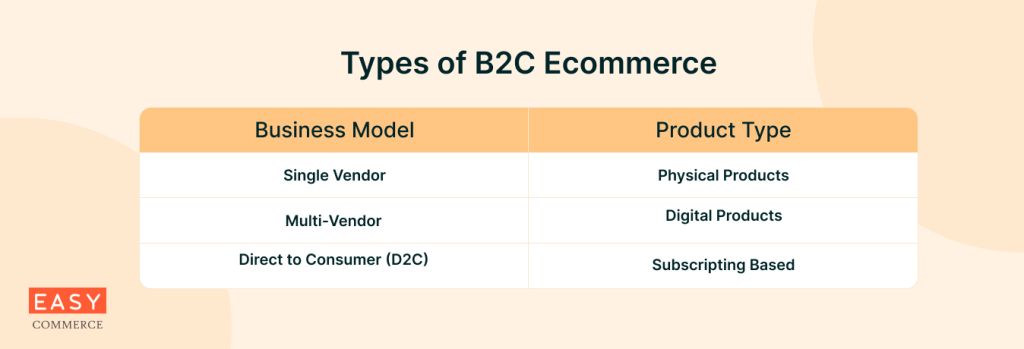
B2C ecommerce businesses vary greatly from person to person, mainly because of differences in business models, product types, and other factors.
The platform you choose should be versatile enough to accommodate these variations. For example –
For Business Models
1. Single Vendor
A single vendor sells products or services to multiple customers.
- Why it matters: Ideal for businesses with straightforward operations, making setup and management simpler for small to mid-sized stores.
2. Multi-Vendor
Multiple sellers can list and sell their products on a single platform, like Amazon or Etsy.
- Why it matters: Great for building marketplaces with diverse product offerings, attracting a larger customer base.
3. Direct-to-Consumer (D2C)
Manufacturers sell directly to consumers through their own websites, bypassing other intermediaries.
Why it matters: It is best for businesses that want control over branding and customer relationships while improving profit margins.
For Product Types
1. Physical Products
Tangible items like clothing, electronics, or furniture that require shipping and inventory management.
- Why it matters: A platform with tools for inventory tracking, shipping calculations, and product variations ensures smooth operations.
2. Digital Products
Intangible goods like eBooks, software, or online courses are delivered digitally.
- Why it matters: A platform with instant delivery capabilities and licensing options is essential for these products.
3. Subscription Based
Products or services sold on a recurring basis, such as meal kits or streaming subscriptions.
- Why it matters: Platforms offering recurring billing and subscription management are crucial for sustained customer engagement.
How to Choose a B2C Ecommerce Platform: 10 Factors to Consider
Choosing the right platform can make or break the success of your business. Focus on ease of setup, user experience, product management, payment options, and security to ensure smooth sales and customer satisfaction.
Here are 10 essential factors you need to consider when choosing a platform –
1. Ease of Setup and Installation
The first step in launching your B2C ecommerce store is choosing a platform that’s easy to install and set up. WordPress plugins have the reputation of offering a simple installation process with many hosting providers often offering a one-click solution.
Later you can download and activate any ecommerce plugin (e.g. EasyCommerce) from the WordPress plugin repository or the plugin’s respective website. Most plugins offer free installation with default functionality that’s intuitive enough to start a B2C ecommerce business right away.
These plugins also come with an intuitive setup wizard that helps you through essential configurations like payment gateways and shipping settings.
2. User Interface (UI) and User Experience (UX)
The design and usability of your ecommerce platform are essential in retaining visitors to your site. A good design makes your store look appealing and helps customers find what they need quickly.
Features like responsive design ensure that your site works well on mobile devices. Customizable layouts let your store match your brand. A simple navigation and quick checkout process make shopping easy, increasing sales and customer satisfaction.
Here’s a summarized list for your convenience –
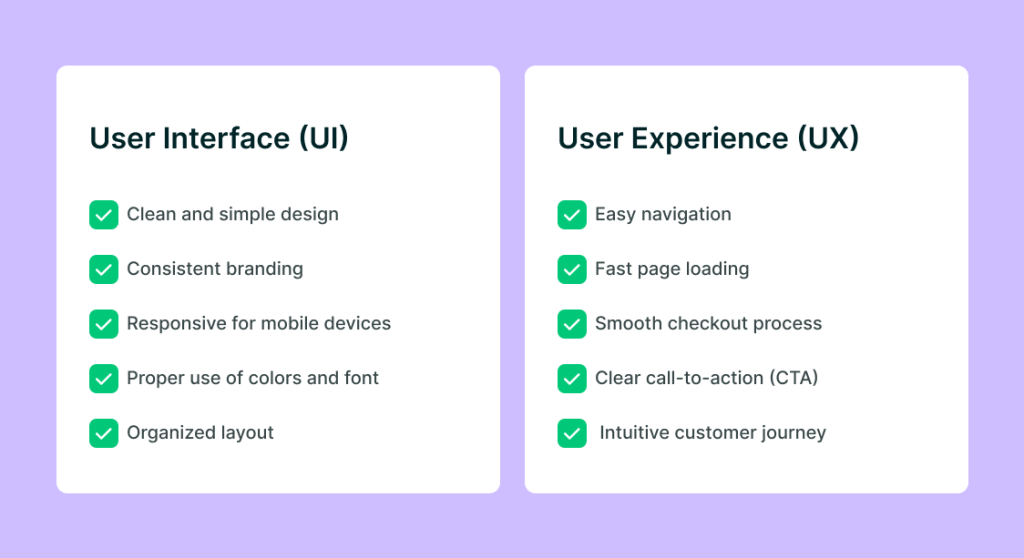
While we couldn’t gather accurate statistics on plugin user impressions of a plugin’s interface and experience. However, we did find that 94% of consumers‘ first impressions of an ecommerce site are generated based on its design.
3. Platform Performance
A fast platform is essential for any B2C ecommerce business. Slow-loading pages annoy customers and lead them to leave without buying.
Studies show that websites with even 0.1 seconds slower than average page load time can decrease the conversion rate up to 2.4-7.1%.
A good ecommerce plugin should be optimized for speed, ensuring your store loads quickly even during high traffic. Check for optimized database queries, and lightweight code, all of which improve performance and keep customers coming back.
Using too many plugins and third-party integrations can slow down your site. So, it’s best to limit the number of plugins and choose a B2C ecommerce platform that works well with popular plugins, themes and manages integrations smoothly.
#QuickTips
Caching saves data to load your site faster by reducing server requests. It improves speed, user experience, and SEO.
4. Product Management
Product management is the top layer element of any B2C ecommerce business. As a B2C ecommerce platform user, you will be spending a lot of time adding and managing products.
So, the more streamlined the process, the more time you can dedicate to other important tasks or serving more customers. Look for tools that help you –
- Add, edit, and organize products effortlessly
- Quickly manage product variations (e.g., size, color)
- Handle bulk product updates efficiently
In general, settings for attributes like size, color, and other variations can be time-consuming, so choose a platform that simplifies these processes. The product submenu within the dashboard should also include Product basics, Status (Live/On Hold), Stock levels, Unit price, Total sales, etc.
5. Order and Customer Management
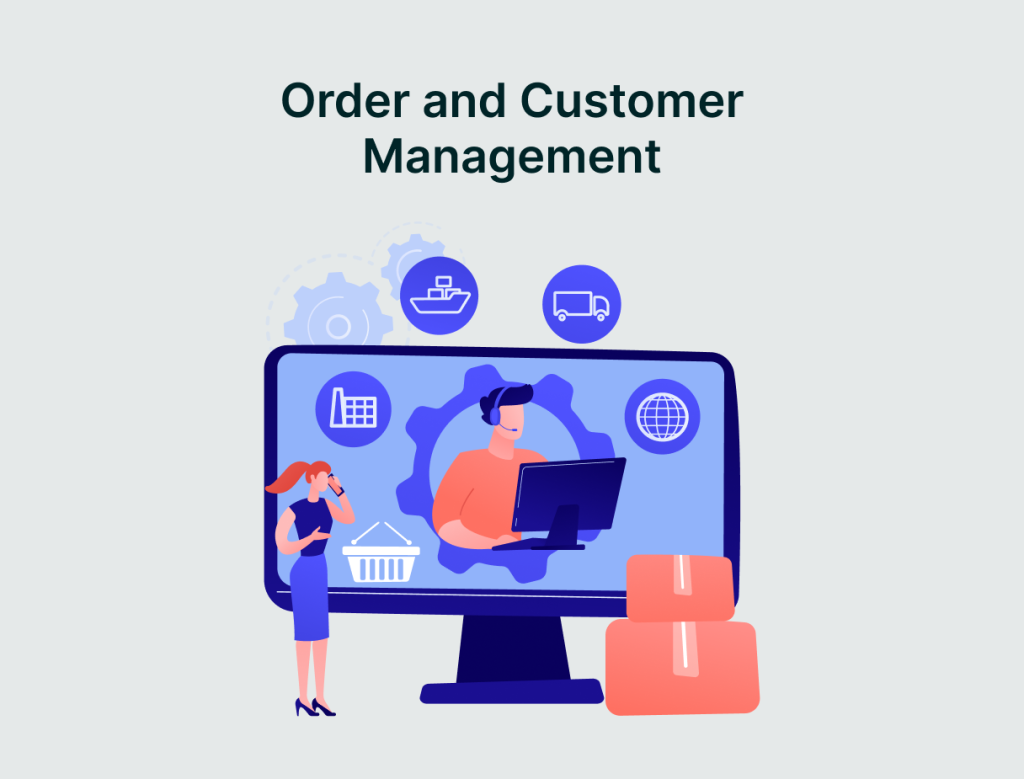
Managing orders and customers is a large part of any B2C ecommerce owner’s daily tasks. A streamlined process for handling these ensures you can efficiently track orders, process refunds, and maintain effective communication with customers.
When choosing a B2C ecommerce platform, prioritize one with robust order and customer management features. Ideally, the dashboard should have separate submenus for orders and customers for better organization.
The order section should provide important information like –
- Order ID
- Customer Name
- Fulfillment Status
- Order Value
- Transaction ID
- Order Date, etc.
Customer management features provide valuable insights into your buyers. These include details about customers who have made at least one purchase on your website, either independently or through orders manually added by you as the store owner.
These sections are significant not just for managing customers and orders but also for building stronger relationships through personalized communications, automated tools, and tracking users’ behavior, campaign performance, etc.
6. Payment Gateway Integration
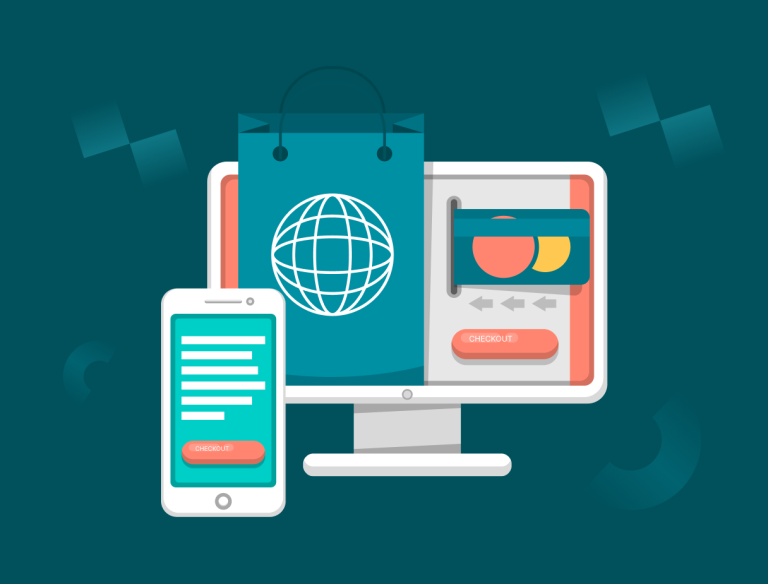
Managing an ecommerce store also involves payment and other integrations. Customers need a convenient way to pay for their purchases, so integrating payment gateways is essential to receiving payments seamlessly.
The most popular payment gateways include Stripe, PayPal, Authorize.net, Square and ApplePay.
Your job is to find a B2C ecommerce platform that facilitates such payment gateways. There may be a default option or individual add-ons (free/purchasable) that can be integrated into the platform easily.
However, it’s wiser to choose an open-source platform that lets you develop add-ons independently and integrate into the platform seamlessly. The same applies to any other third-party functions like CRM, inventory management and delivery management, analytics, etc.
7. Checkout, Shipping and Tax Calculation
Delivery, shipping, and checkout are crucial for B2C ecommerce businesses. Ensuring an error-free, streamlined process improves customer satisfaction and builds trust.
You can either manage orders manually by booking delivery platforms individually or integrate known delivery solutions to automate the entire process. A seamless checkout process complements this by reducing abandoned carts and capturing accurate shipping details effortlessly.
Also, if you’re selling products internationally, taxes can become a significant factor. Depending on the destination country and product type, taxes might even exceed the product’s price. You can learn more about ecommerce taxation by clicking the link here.
To avoid confusing your customers about unexpected customs fees or delays, choose a B2C ecommerce platform that provides real-time tax calculations. This ensures transparency and helps customers understand their total costs upfront.
8. Customization and Compatibility
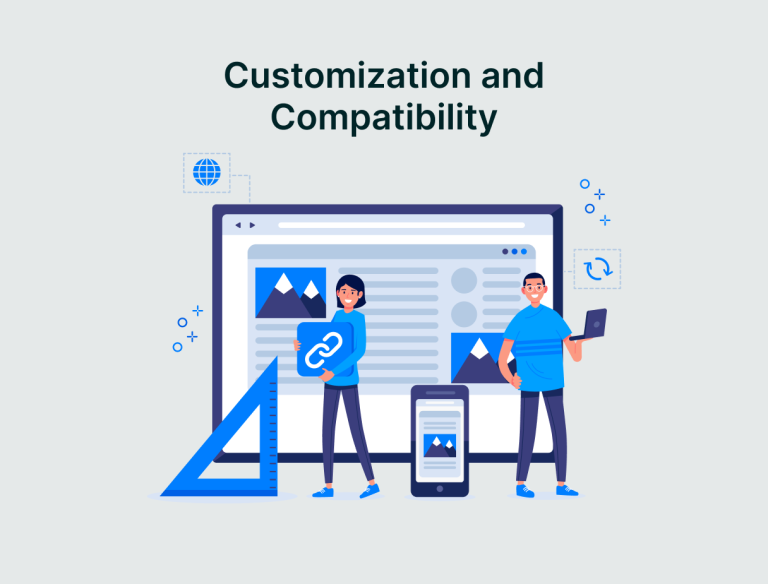
Not all B2C ecommerce businesses are the same, and users often have different preferences for features, customization options, and compatibility.
Your chosen B2C ecommerce platform should offer robust customization options, including –
- Modifying Shop and Single Page layouts using Gutenberg blocks.
- Selecting from default layout variations provided by the platform.
- Adjusting color settings to align with your brand identity.
- Customizing email notification messages to match your tone.
In terms of compatibility, the platform must be rigorously tested to work seamlessly with popular plugins, add-ons, themes, templates, and payment gateways. This ensures a smooth, error-free ecommerce experience for both you and your customers.
9. Data Security and Compliance
Security is a non-negotiable criterion for an ecommerce store. Customers trust you with sensitive information like credit card details, home address, etc. so your platform must commit to handling this data with utmost transparency.
Security features include SSL (Secure Sockets Layer) support and compliance with GDPR, CCPA, PIPEDA, LGPD, or other data protection regulations. Regular updates and secure payment gateways further protect your store and build customer trust.
Most importantly, the platform should never store user data without explicit consent. Be cautious of platforms that require you to store your store’s data on their servers. This can put your data at risk and make your business vulnerable to server failures, causing major disruptions and possible losses.
10. Updates, Support, and Documentation

A B2C eCommerce platform isn’t just a one-time purchase to use as-is. Programming bugs, system updates, feature additions, interface changes, and security updates are common. Regular updates are crucial to keep your store secure and up-to-date.
At the same time, a reliable support system is essential when running an online store. Choose a platform that offers responsive customer support, be it through live chat, email, or forums.
Also, keep a lookout for comprehensive documentation that can help you troubleshoot issues independently and save time in the process.
EasyCommerce – The Ultimate B2C Ecommerce Platform
Now that you have a clear idea of what to consider when choosing a B2C ecommerce platform, let’s explore a state-of-the-art tool that’s designed to meet your every business need efficiently. EasyCommerce is a WordPress-based platform that offers free installation and delivers a fast, intuitive experience to provide a successful ecommerce journey.
EasyCommerce features a dynamic, real-time dashboard that lets you monitor your business activities at a moment’s notice. Its extensive add-on library, combined with essential built-in features, makes running an online store seamless and quick.
When selecting the right platform for your business, it’s important to compare WordPress vs Shopify for Ecommerce and Magento vs WordPress for Ecommerce to ensure you choose the best solution for your needs.
Pros of Using EasyCommerce
- Easy to Use: Simplifies eCommerce operations for all levels of expertise.
- Cost-Effective: Combines essential features at an affordable price.
- Scalable Solution: Grows with your business without compromising performance.
- Responsive Support: Reliable assistance to address issues swiftly.
- Seamless User Experience: Smooth navigation keeps customers engaged.
Set Your B2C Ecommerce Business Up for Success!
To succeed in B2C ecommerce, choose a platform with easy setup, fast performance, customizable features, and seamless integrations. It should handle product management, secure payments, and shipping smoothly, with real-time tax calculations and data security compliance.
Regular updates and good customer support are also essential. EasyCommerce is a great choice, offering a user-friendly setup, scalability, and powerful features to help your business thrive!
Frequently Asked Questions (FAQs)
What are the 5 types of B2C?
- Single Vendor – One seller offers products to many customers.
- Multi-Vendor – Multiple sellers on one platform (e.g., Amazon).
- Direct to Consumer (D2C) – Manufacturers sell directly to consumers.
- Physical Products – Tangible items requiring shipping.
- Digital Products – Intangible goods like software or eBooks.
What are the disadvantages of B2C?
B2C businesses face challenges such as high competition, price sensitivity, and costly customer acquisition. Managing returns and refunds can be complex, and as the business grows, scalability becomes an issue.
These factors can impact profitability and operational efficiency, making it important to plan carefully.
What feature is essential for a B2C ecommerce website?
Essential features for a B2C ecommerce website include a user-friendly interface for easy navigation, mobile responsiveness to ensure functionality across all devices, secure payment gateways for safe transactions, a fast page load speed to enhance user experience, and an easy checkout process to reduce cart abandonment.

